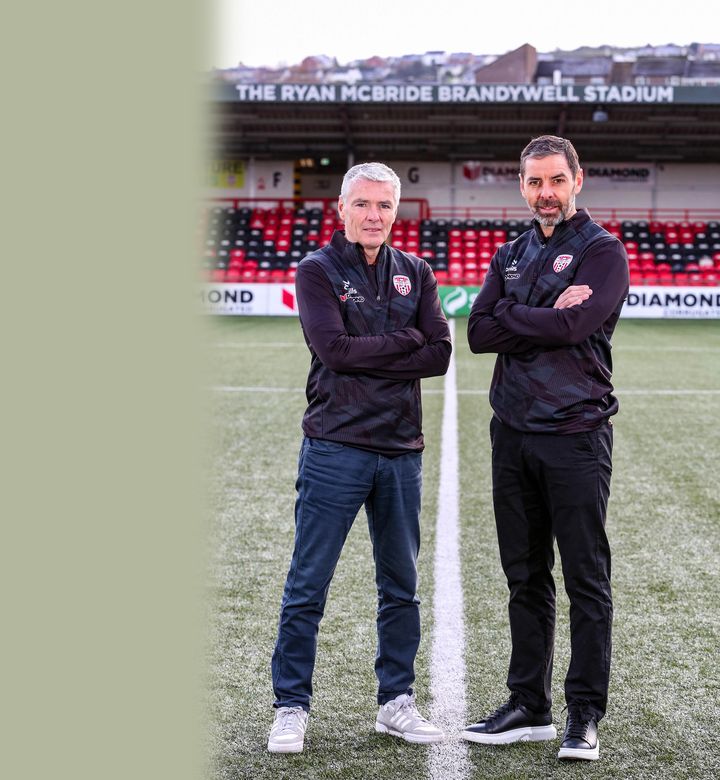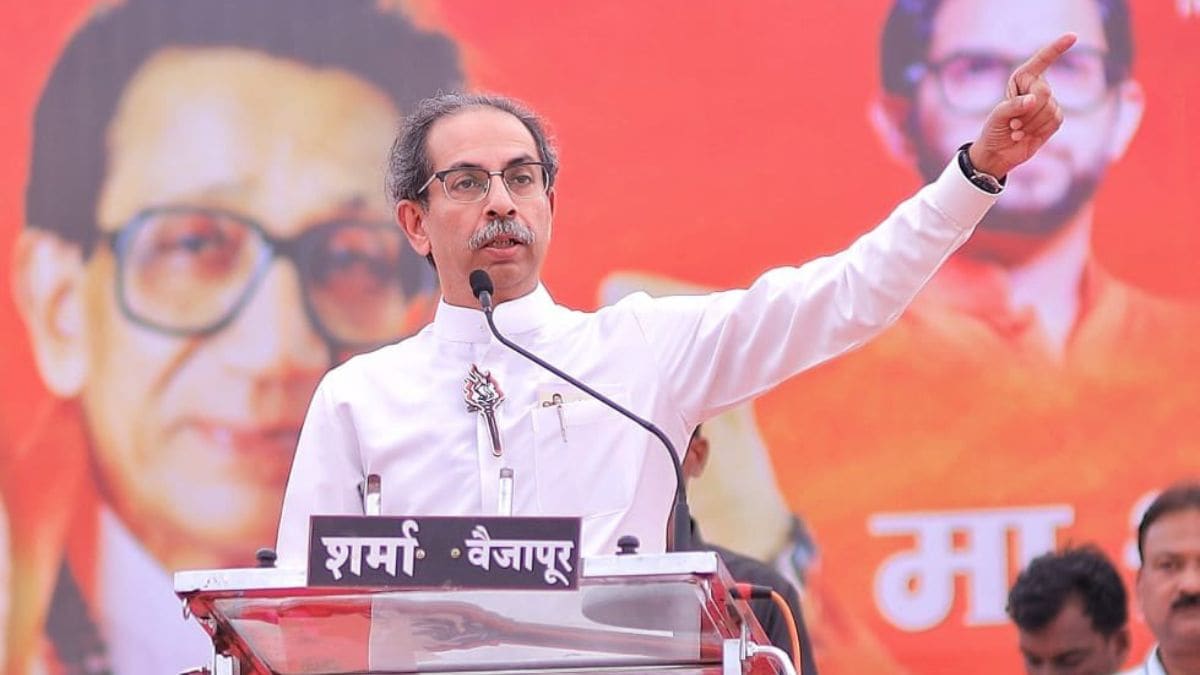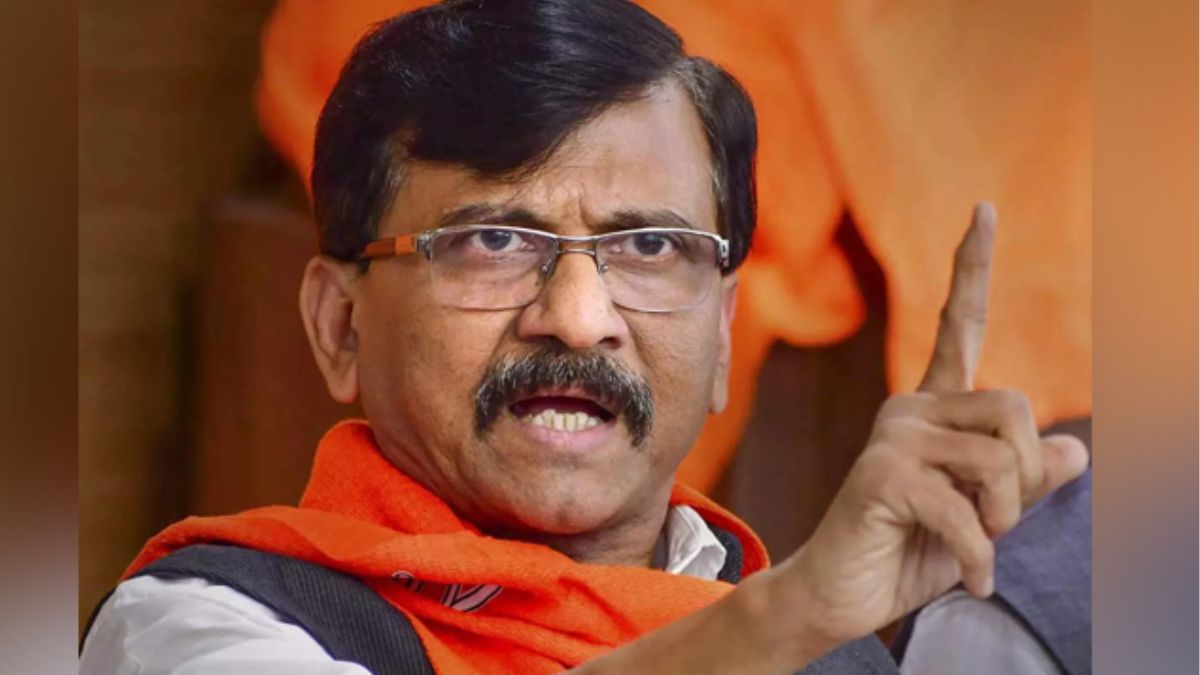
For eight turbulent years, Cook County State’s Attorney Kim Foxx has been a central figure in arguably Chicago’s most central issue: entrenched gun violence and how to keep people safe within an imperfect criminal justice system. Elected in 2016 with a mandate for reform in the wake of the killing of Laquan McDonald by a Chicago police officer, Foxx has been in the middle of nearly every conversation about safety and justice in Cook County, often with a polarizing fervor. Now she’s on her way out, making way for a successor, Eileen O’Neill Burke, who comes to the office with a different mandate.
Foxx’s supporters laud her as a trailblazer, noting her early support of the historic bail reform measure that took effect last year, her expungement of past marijuana convictions and a sharp focus on wrongful convictions that led to hundreds of exonerations over her tenure. Kim Foxx waits to address the media after a Thanksgiving service at Sweet Holy Spirit Church on Nov. 26, 2015.
During the service, Bishop Larry Trotter called for the firing of Cook County State’s Attorney Anita Alvarez and Police Superintendent Garry McCarthy, in response to the video release of Laquan McDonald, who was fatally shot by police officer Jason Van Dyke in 2014. Foxx is a candidate for Cook County State’s Attorney. (John J.
Kim/Chicago Tribune) But she has often been a lightning rod for criticism of her style of progressive prosecution, from conservative critics nationally, Chicago’s former police superintendent and the Fraternal Order of Police, some longtime attorneys in her office and the Democratic candidate who will replace her. Her posture, they said, signaled the office was soft on crime. Now, for the first time in nearly a decade, Chicagoans and suburbanites will watch a new administration attempt to tackle the county’s most critical issues when retired appellate court Justice O’Neill Burke is sworn in on Dec.
2. And as her era comes to a close, Foxx reflected on her tenure in a broad interview with the Tribune, characterizing the moment as not bittersweet but “sweet sweet” as she looks ahead to a break from the intense public glare and the trauma of a job centered often on violence. Foxx expressed confidence that in 20 years she will be remembered as ahead of her time, delivering “substantive transformative changes to the criminal justice system.
” But she argues she endured unprecedented scrutiny, and at times ugly racial attacks, along the way. The frustration with that opposition — and what she called the journalistic “tomfoolery” that sometimes fed it — lingers. “Optimistic, naïve Kim Foxx in 2016 who said that she wanted to have bail reform could never have fathomed that we would abolish cash bail in eight years.
I would never fathom that we would have legalized marijuana legislatively and vacated all of those convictions,” she said. “It truly is remarkable what has happened, and for my critics who may not have appreciated my approach or thought that I was too far afield, my greatest satisfaction is that they were proven wrong.” Foxx, who grew up in the Cabrini-Green public housing development, served for 12 years as an assistant state’s attorney and was chief of staff for Cook County Board President Toni Preckwinkle.
Her defeat of incumbent top prosecutor Anita Alvarez came as part of national wave of so-called progressive prosecutors who championed police accountability and de-emphasized prosecuting lower level crimes. They talked bluntly about — and sought to unwind or prevent — the disproportionate racial and economic impacts of the criminal justice system. This approach often made Foxx the target of aggressive pushback from the FOP, the union that represents Chicago police officers, as well as a class of tough-on-crime advocates who argued that the way to reduce crime was through pretrial detention and harsh sentences.
Members of the Fraternal Order of Police and their supporters clash with counterprotesters and Kim Foxx’s supporters as they gather outside the George W. Dunne Cook County office building on April 1, 2019. Jamal Green, center, argues with John Catanzara, then a member of the FOP.
(Antonio Perez/Chicago Tribune) But Foxx has been nearly singular in her ability to continue to win on that platform, and remains one of the few top prosecutors to garner national attention who has stepped aside on her own terms. Members of that cohort have been targeted for impeachment, recalled, voted out, suspended, or hamstrung by legislative limits to prosecutorial discretion. Among the latest defeats: Los Angeles District Attorney George Gascón, who lost Nov.
5 after surviving two recall campaigns; Oakland D.A. Pamela Price — in office for less than a term — recalled after Election Day; Chesa Boudin, ousted in San Francisco in summer 2022.
In Florida and Texas, meanwhile, lawmakers have exercised or broadened powers to remove district attorneys from office. “We are in the consistent pattern of American politics, that when there is progress, there is regression,” Foxx said, adding it was too early to eulogize the movement. She pointed to the victories of Melesa Johnson as the first Black woman progressive elected district attorney in Kansas City, Missouri, and the reelection of Monique Worrell in Orlando after she was suspended by Florida Gov.
Ron DeSantis. Philadelphia District Attorney Larry Krasner also survived a Republican impeachment attempt earlier this year. “I think we’re still winning, but it will be a very difficult four years under this next presidential term,” she said.
Foxx cautioned that table-pounding “tough on crime” rhetoric — which both candidates running to replace her used, at times — has led to bad policy and terrible results. She noted that record homicide rates in the late 1980s and early 1990s coincided with policies like the overincarceration of people during the so-called war on drugs, three strikes laws and hundreds of wrongful convictions her office has overturned. “There was this sense (of) .
.. we’re going to solve and close these cases by any means necessary,” she said.
“And so it’s not a surprise to me that 30, 35 years later, we’re looking at cases where the evidence was flimsy and asking, how did we get here?” During Foxx’s tenure, she prioritized undoing unjust past convictions as part of the same obligation to serve justice as winning new convictions. Her Conviction Integrity Unit overturned more than 250 wrongful convictions, even as its leadership under former head Nancy Adduci was highly scrutinized for her role in prosecuting three men accused of killing Chicago Police Department Officer Clifton Lewis. Their convictions were overturned amid allegations Adduci and her partner hid evidence.
Many of the wrongful convictions were tied to a handful of notorious CPD officials such as Cmdr. Jon Burge and detectives Reynaldo Guevara and Ronald Watts, whose legacies of torture and falsifying evidence spawned a reckoning for the city and a state commission tasked with investigating claims of torture. Among them: Arthur Brown, who spent almost 30 years in prison for an arson that he didn’t commit; Lee Harris, who was freed after a wrongful murder conviction but died eight months after he got home; and Jimmy Soto, who was freed after four decades in prison for a double homicide.
Cook County State’s Attorney Kim Foxx hugs exoneree Jose Cruz at the Chicago City Club at Maggiano’s Banquets on April 25, 2023. Foxx announced she would not run for reelection. (Shanna Madison/Chicago Tribune) Arthur Brown embraces with his niece Nenora Anderson and attorney Tal Chaiken, right, after Brown was released from Cook County Jail in Chicago on Nov.
14, 2017. Brown spent nearly 30 years behind bars on a murder conviction. His attorneys went to State's Attorney Kim Foxx's inner circle to argue for his release.
(Chris Sweda/Chicago Tribune) Jackie Wilson listens to testimony from the gallery on the second day of the trial of former Cook County assistant state's attorneys Nicholas Trutenko and Andrew Horvat on misconduct charges related to Wilson’s prosecution on Oct. 17, 2023, at the courthouse in Rolling Meadows. (Brian Cassella/Chicago Tribune) James “Jimmy” Soto celebrates his release from prison while surrounded by his sisters, Pilar More, left, and Marta Cruz, his friend Robert Almodovar, who Soto helped get exonerated from prison, and Diana Gauna, Soto’s longtime girlfriend, on Dec.
14, 2023, outside Stateville Correctional Center in Crest Hill, Illinois. (Vincent Alban/Chicago Tribune) Lee Harris speaks during a news conference at the former site of the Cabrini Green housing projects on Sept. 28, 2023.
Harris, who was exonerated in March 2023 after spending three decades in prison, filed a federal civil rights lawsuit against the Chicago Police Department. Harris died eight months after he was released from the prison. (Talia Sprague/Chicago Tribune) Cook County State’s Attorney Kim Foxx hugs exoneree Jose Cruz at the Chicago City Club at Maggiano’s Banquets on April 25, 2023.
Foxx announced she would not run for reelection. (Shanna Madison/Chicago Tribune) “I would suspect there’s a list of many other officers where we’re starting to see a pattern and practice, where we have not been able to get to them,” she said, adding that the small staff of around seven people dedicated to those investigations don’t have the capacity to tackle the magnitude of the problem. Even two of her former assistant state’s attorneys are on trial, accused of wrongdoing in connection with the infamous wrongful conviction of Jackie Wilson , whose case was critical to unveiling the patterns of torture that so many other exonerations were predicated on.
Because of the conflict, the case is being tried by special prosecutors, not Foxx’s office. On the explosive events that led to criminal charges for former ASAs Nicholas Trutenko and Andrew Horvat, Foxx said it was a “jarring experience” that caused the office to look at its conflict of interest and ethics policies and training for attorneys. “I would hope that, should the allegations be true, that (Trutenko) would be held accountable,” she said.
“I certainly know that ...
his former colleagues in this office are watching that, and certainly I am confident that they are operating in a way that would not allow themselves to find themselves as defendants instead of prosecutors.” But the conviction reversals have come at a steep cost to taxpayers, Foxx acknowledged, and she said they only represent the “tip of the iceberg.” Under Foxx, the office has held dual — and seemingly conflicting — roles: the lawyer representing the county and working to mitigate settlement payouts, while overturning convictions that lead to those settlements.
She cautioned against slowing down wrongful conviction work because of that cost. “That would be wrong-headed. To do that in an effort to save county dollars, I think would be a violation of our oath as prosecutors,” she told the Tribune.
State’s Attorney Kim Foxx at a press conference after filing the first motions to clear cannabis convictions, in the lobby of Leighton Criminal Court Building, on Dec. 11, 2019. (E.
Jason Wambsgans/Chicago Tribune) While new surveillance and forensic technology has helped build stronger cases today, Foxx said she’s also tweaked policies to address past missteps or mistakes that led to those wrongful convictions, such as in some cases that hinge on single witness identifications or have no physical evidence tying the defendant to the crime. The office also instituted a “do not call” list of detectives they don’t consider credible to testify in cases. Foxx, though, conceded those tougher standards have contributed to tension with police.
“I think historically, there had been a sense that, ‘We’ll charge it, and we’ll let the court system work it out,’ right? If it’s shaky, we’ll let a judge or a jury work it out,” she said. So rather than “kicking the can down the road,” Foxx said she empowered her prosecutors to make those decisions up front, even if it puts them in conflict with police. “It is not easy to tell a partner who’s worked really hard on a case that it’s not sufficient, but the reality is, that’s our oath,” Foxx said.
That tension with police — including former CPD Superintendent David Brown, past heads of the FOP and frontline officers — was a consistent hallmark of Foxx’s time in office. Critics conflated her calls for police accountability with anti-police bias, she said, and ignored her office’s prosecutions of cop killers and efforts to bring justice in high-profile murder cases. Brown, she said, made several claims “without merit,” blaming her for looting, rising violence and “letting people out on bail, none of which I had the power to do.
” To blame the state’s attorney for rises or credit them for falls in crime rates, she said, would be factually inaccurate. Cook County State’s Attorney Kim Foxx speaks during her final budget hearing in the Cook County Board room on Oct. 31, 2024.
(Eileen T. Meslar/Chicago Tribune) “When I came into office in 2016, it had been the bloodiest year in Cook County and the city of Chicago since 1999. There were 768 murders,” Foxx said at her final budget hearing with county commissioners earlier this month.
“In 2017, crime went down; 2018, it went down again. And then we had this once-in-100-year pandemic that uprooted everything, not just here but across the country. And we saw violent crime rise” in big cities like Chicago and New York and smaller, more conservative areas like Tulsa, Oklahoma, and rural Georgia.
“And then we’ve seen in the course of the last two years that violent crime has continued to decrease year over year since 2021,” she told commissioners. But in perhaps one of her biggest clashes with police — and her biggest scandal — Foxx’s office dropped charges against former “Empire” actor Jussie Smollett , who was later found guilty after an investigation by a special prosecutor of falsely reporting a hate crime to police. The media frenzy around the case has been a source of constant frustration for Foxx, though her office’s handling of the case was roundly criticized by a large cross-section of Chicago law enforcement and the legal community because of the unusual and opaque move to dismiss the case.
A judge found that Foxx improperly recused herself from the case, and he assigned former federal prosecutor Dan Webb to investigate. The Illinois Supreme Court is likely to rule on the matter soon after a lengthy appeal in which Smollett’s attorneys argued that double jeopardy, the legal principle that says individuals can’t be charged twice for the same crime, was in play when the state’s attorney’s office dismissed his case. As her time in office winds down and the post mortems begin, Foxx said she’s proud of her work during a period that involved a national reckoning on race and policing and the pandemic.
“I don’t want to die now, but I feel like I know what the funeral will sound like,” she said. She reflected on cultural changes she made in the office — seeking out a more diverse staff and ending traditions like cutting the pantyhose of female attorneys to mark first wins. Cook County State’s Attorney Kim Foxx poses in her office in the Loop on Nov.
12, 2024. (Armando L. Sanchez/Chicago Tribune) “This was an office that was largely seen as a white man’s office, and now we have people loudly and proudly proclaiming their unique perspectives, because guess what? They represent segments of our community outside of the office,” she said.
Foxx has spent more than two decades in the “nest of county government,” as a former ASA, chief of staff to Preckwinkle and leading the top prosecutor’s office. Much of that work was “meeting with people who had been abused or harmed, dealing with the highest levels of government ..
. to be tense every morning, hoping, praying that someone wasn’t killed,” she said. “That’s a lot of trauma .
.. and I don’t think we talk about the vicarious trauma that prosecutors have in dealing with death and loss every single day.
I’ve certainly felt that.” She said she has no immediate plans for work outside of rest and, eventually, some part-time teaching. “I absolutely would love to impact the next generation of lawyers or strategic thinkers or public servants,” she said.
“That would be an honor to me, while also doing something that would allow for me to pay for four kids to be in college at the same time.”.













